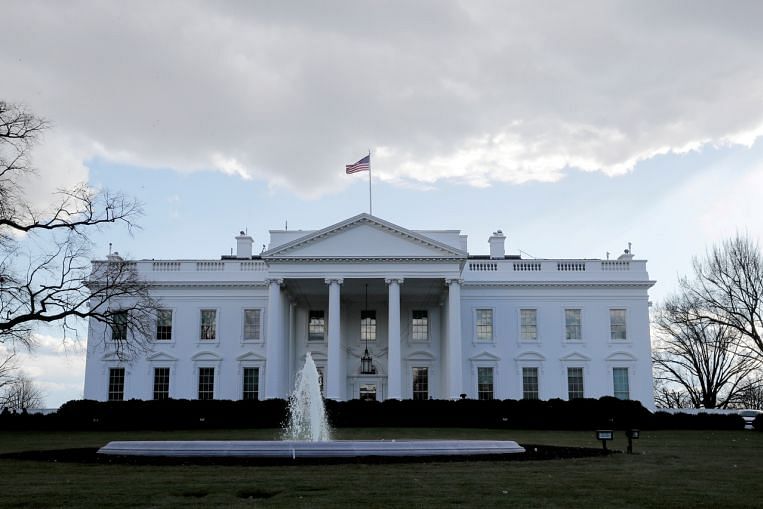
WASHINGTON - It started, like many international espionage stories, in Havana, capital of Cuba, the stubbornly communist island nation off the coast of the United States that has long been an irritant to Washington.
That was where, starting in 2016, Central Intelligence Agency officers and State Department employees - at least 26 of them - first reported strange sensations in their heads.
The sensations were like invisible beams, some said. They were debilitating and incapacitating. Many suffered headaches, vertigo or vision problems. Some reported "piercing directional noise". Some said they were able to "step in" and "step out" of these sensations by physically going elsewhere - implying that an external factor was involved.
And then it spread, notably to Vienna - another Cold War-era spy hub - as recently as last month.
But the fact that it started in Havana gave it a label that has stuck: Havana syndrome.
It was suspected Havana syndrome affecting two American diplomats in Hanoi, on the eve of US Vice-President Kamala Harris' trip to Vietnam this week, that delayed her departure from Singapore.
US officials were cagey. At the daily White House press briefing on Tuesday, Press Secretary Jen Psaki responded to a question with a formulaic "We, of course, take any reported incident of Havana syndrome seriously. And while this is not a confirmed case at this point in time, we take any reported incident… quite seriously".
She added: "As a result, there was an assessment done of the safety of the Vice-President, and there was a decision made that she could continue travel along with her staff."
Cases of Havana syndrome have been reported by US diplomats in Russia, China and elsewhere. In April, a Senate committee said cases seemed to be rising. Reports emerged that month of two separate incidents that occurred near the White House in late 2020 affecting National Security Council (NSC) staff.
One NSC official was walking through an unstaffed gate at the White House when the person began exhibiting symptoms, a source told CNN. A few weeks later, another official was near an entrance at the White House when immediate medical attention was sought for more severe symptoms.
There is no definitive answer as to what triggers Havana syndrome - but that it is real is beyond doubt.
Back in 2017, specialists at the University of Pennsylvania's Centre for Brain Injury and Repair used advanced MRI scans to study the brains of 40 of the original patients from Havana.
They reportedly found no signs of physical impact to the patients' skulls. But there was damage to their brains as if they had suffered "a concussion without a concussion".
US investigators have struggled to determine what causes the symptoms.
As of May 2021, more than 130 people had reported the illness, including spies, diplomats, soldiers and other US officials, The New York Times reported.
One plausible hypothesis proposed by the National Academies of Sciences, Engineering and Medicine in December 2020 points to a radio frequency pulse as the trigger.
Symptoms were "consistent with the effects of directed pulsed radio frequency energy", the Academies said.
"Many of the acute, early-phase symptoms and observations reported by (State Department personnel) are consistent with RF (radio frequency) effects" the report said.
These included "a perceived clicking sound within the head even when the ears were covered, a perceived force/pressure sensation within the head and on the face, perceived spatial localisation and directionality of these perceived phenomena and other loud sounds, hearing loss, tinnitus, impaired gait and loss of balance, as well as the absence of heating sensation and absence of observed disruption of electronic devices in the immediate environment".
But the experts who analysed the evidence were unable to definitively rule out other causes.
As the symptoms varied, it was possible there were "multiple causal factors including psychological and social factors", the report said.
"These factors could exacerbate other causes of illness and cannot be ruled out as contributing to some of the cases, especially some of the chronic symptoms or later in the course of illness in some cases."
Yet the experts also concluded that "the acute initial, sudden-onset, distinctive and unusual symptoms and signs are difficult to ascribe to psychological and social factors".
In March 2021, the State Department designated a senior official, Ms Pamela Spratlen, a former ambassador to Uzbekistan and the Kyrgyz Republic, who also served in Kazakhstan, senior adviser to the Health Incident Response Task Force, created in 2018 to coordinate the response to the spate of incidents.
Both Russia and Cuba, meanwhile, have denied any hand in the incidents.
https://news.google.com/__i/rss/rd/articles/CBMibGh0dHBzOi8vd3d3LnN0cmFpdHN0aW1lcy5jb20vd29ybGQvdW5pdGVkLXN0YXRlcy91bmV4cGxhaW5lZC1oYXZhbmEtc3luZHJvbWUtaGFzLXVzLXN0YXRlLWRlcGFydG1lbnQtd29ycmllZNIBAA?oc=5
2021-08-25 03:21:49Z
CAIiEHVsKz4PFm-hFrphLkLmEcsqGQgEKhAIACoHCAow_7X3CjCh49YCMKWWpwU
Tidak ada komentar:
Posting Komentar